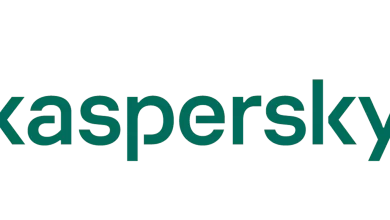HR Issues Business Heads Need To Work In 2023 For Meaningful Employee Lifecycle Experiences

Planning, staffing, rewarding, and developing personnel for today’s profitable enterprises is the field of human resources (HR), which is always changing. There has been such a quick change in HR-related themes, including recruitment, talent engagement, management, and others, to revamp the entire employee lifecycle that many HR professionals had to relearn to manage as the business changed over a period. In light of this, we’ve put up a list of the issues business heads need to work on in 2022 and make the experiences for employees more meaningful.
HR Issues To Focus On In 2023 And Make Employee Lifecycle Experiences More Meaningful
Greater attention should be on diversity, equity, and inclusion-led culture
Employees want meaningful workplace experiences. For that to happen, the culture should be open and progressive. Not every organisation has well-defined processes for promoting diversity, equity, and inclusion among employees. When companies are hiring workers from across borders or geographics, this is going to be the biggest challenge for HRs to tackle. Without promising the DEI-led culture, employees might indulge in conflicts with one another. So, there has to be a smoother mechanism to ensure every employee has an opinion that is heard, respected, and worked upon by decision-makers like CHROs.
uKnowva HRMS here is a tool for successfully bringing in more diversity, equity, and inclusion between employees and teams across a business unit. It helps to connect employees more purposefully over the social intranet. Employees can leave reviews and feedback for one another. Reporting managers can evaluate these reviews and work on each individual’s succession planning and decrease the conflicts between two individuals from different backgrounds and experiences.
HRs need to be more serious about bringing harmony among their team members. Otherwise, building a collaborative approach in the culture will be difficult, and projects will get delayed just because employees are not on the same page.
Hybrid and remote work will need to be more flexible with valuable contributions
Since many businesses continue to provide the flexibility of on-site, hybrid, and remote work options, expect remote work to remain a significant component of the employee experience and a prominent HR subject in 2023.
Many workers could discover they are happier or more productive working from home than in an office setting with a standard 9 to 5 schedule. They may look for jobs that best suit their schedules. In other cases, HR professionals may discover that one-size-fits-all regulations are ineffective and that the best course of action for boosting productivity and retaining employees may be to rely on employees to select their working styles. HR managers will regularly adjust to a workforce that might not be physically present.
Employees are from literally everywhere in these times. They need stable systems that allow more flexibility in working hours and schedules. Finding the right system or tool for providing increased workflow flexibility might seem impossible to some HRs.
But uKnowva HRMS is easier to implement for remote workers. It acts as a self-serving portal for employees to regularly punch in their attendance, fill their timesheets, review their projects, and do more as they do uKnowva.
The tool will also know HR leaders or reporting managers to track each employee’s progress, even if they are working on different timelines or schedules. There will be greater transparency in terms of tracking their meaningful contributions along the way. But knowing that HRMS like that exists and making it a mandate to implement it on time can be the greatest challenge for the new-age HRs.
Streamlining hire-to-retire activities for better employee experiences
The hire-to-retire activities will have to be more on cloud-based platforms like uKnowva HRMS. Otherwise, bulk hiring could be one of the issues that impact the employee lifecycle in the long run. When companies are growing, they need to hire in bulk. Without streamlining the process, companies cannot provide the best experience to their existing employees.
Upskilling staff members or employees for their greater good:
The Society for Human Resource Management (SHRM) has a report that concludes that hiring managers now give soft skills greater weight than they did in the past. Compared to hard worker skills like technical abilities, soft skills like empathy, emotional intelligence, mindfulness, flexibility, self-motivation, and resilience are starting to come into their own.
Communication and interpersonal skills may be even more crucial when working remotely. To connect with their workers, comprehend their obstacles, and assist them in overcoming them, managers and HR professionals will need to develop their emotional intelligence.
According to a recent post on the LinkedIn Talent Blog, employee upskilling and reskilling, or giving current employees training and development to improve their present skill sets or learn new ones, has been defined as a strategy to “future-proof” a firm.
One of the HR issues, thus, is to watch out for upskilling their employees because it is a sustainable method of workforce development, aids in the retention of quality workers, raises morale, and can reduce the expense of hiring and onboarding new employees. HRs need to know which skill must be uploaded in the eLMS, like the uKnowva offers.
HRs also need to establish a culture of learning and upgrade one’s knowledge and skills. Initially, there could be resistance from employees who have an average mindset. They might know the ultimate benefit of learning on the go. HRs must possess convincing skills or hire team members who are keen to learn more.
Only then can business heads and reporting managers create more impact with each contribution added by their team members with difficult projects, which they will be empowered to spearhead with newly learnt skills.
Engaging employees regularly to bring more harmony to the teams
Despite technological advancements, HR teams should keep in mind that their work still involves people. They should continue to be kind and compassionate, and they should encourage staff members to voice their concerns.
Senior management must also be compassionate and empathetic toward employees’ demands if they don’t want to lose them because they leave to pursue chances elsewhere, leaving gaps that can be difficult to fill.
In 2023, more issues will develop in worker development and performance. Methods of judging employee performance will need to alter and be more people-centric. Without properly engaging employees, it’s difficult to bring in loyalty from employees or turn them into brand ambassadors in the long run.
uKnowva HRMs is one such solution that brings more harmony in teams, even when they are not physically together. It develops this sense of community with its social intranet feature. Employees have the right to publish their opinionated posts for everyone to read, like, comment on, and wish each other on birthdays, work anniversaries, and other meaningful events in each other’s work life.
The entire employee lifecycle can become streamlined and run on autopilot when team members trust each other. This only happens when they connect to collaborate, even on uKnowva’s social intranet.
Conclusion
In 2023, HR professionals may face substantial issues as a result of HR Trends like hybrid and remote work, employee skills management, employee benefits, company culture, engagement, technology, silent resignation, and a focus on retention. HR professionals will need to be at the top of their game regardless of how these problems are presented.





